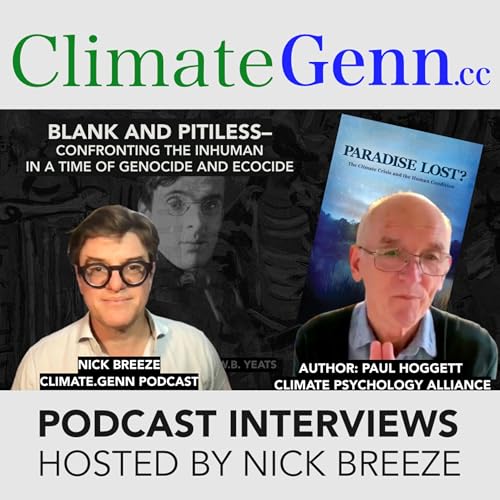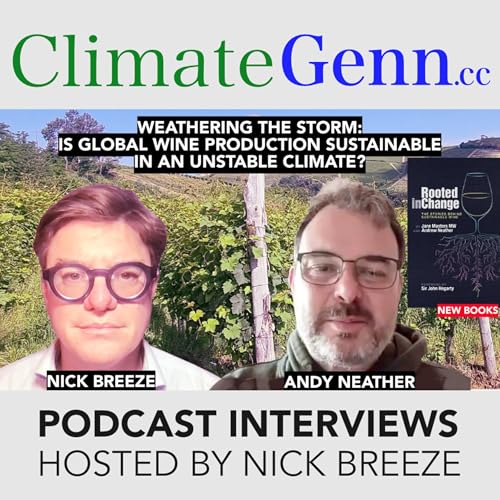In this ClimateGenn episode I am speaking with cofounder of the Climate Psychology Alliance (CPA) and author of Paradise Lost, Paul Hoggett. Paul’s book was published in 2023 and is more relevant today than it was a couple of years ago, given the ongoing tragedies and violence we are all being subjected to and forced to respond to.
"There's that kind of coldness, that cold indifference in the face of inhumanity and suffering is something I think has been a very powerful element in the way in which, for example, oil companies and oil company professionals and executives have functioned."
Paul Hoggett - Author of 'Paradise Lost' 2023
For more information visit: https://genn.cc/a-blank-and-pitiless-stare-confronting-the-inhuman/
Paul refers to the work of the poet WB Yeats, in particular, one poem, ‘The Second Coming’ written in 1919 in the aftermath of the first world war. Given its resonance in the context of our lives today, I have pasted below for those who have not read it:
Turning and turning in the widening gyre
The falcon cannot hear the falconer;
Things fall apart; the centre cannot hold;
Mere anarchy is loosed upon the world,
The blood-dimmed tide is loosed, and everywhere
The ceremony of innocence is drowned;
The best lack all conviction, while the worst
Are full of passionate intensity.
Surely some revelation is at hand;
Surely the Second Coming is at hand.
The Second Coming! Hardly are those words out
When a vast image out of Spiritus Mundi
Troubles my sight: somewhere in sands of the desert
A shape with lion body and the head of a man,
A gaze blank and pitiless as the sun,
Is moving its slow thighs, while all about it
Reel shadows of the indignant desert birds.
The darkness drops again; but now I know
That twenty centuries of stony sleep
Were vexed to nightmare by a rocking cradle,
And what rough beast, its hour come round at last,
Slouches towards Bethlehem to be born?
Source Wikipedia
I definitely recommend Paul’s book, Pandora’s Box too if you want to explore the issues that we discuss in this episode. I have found it fascinating.
W.B. Yeats – The Second Coming
 36 min
36 min 47 min
47 min Dec 8 202530 min
Dec 8 202530 min 30 min
30 min 25 min
25 min Oct 29 202525 min
Oct 29 202525 min 34 min
34 min
